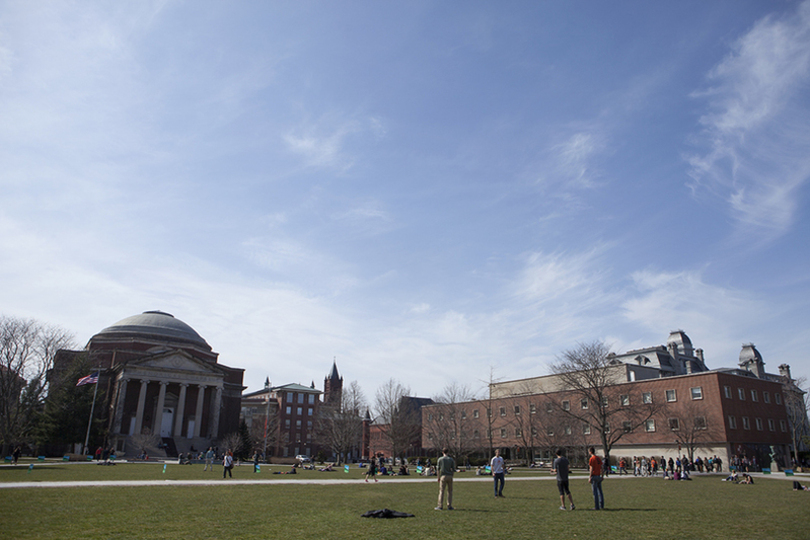Syracuse University prepares to embrace new change in overtime pay labor regulation

Under the the revised Fair Labor Standard Act, staff members at Syracuse University will qualify to receive more overtime pay. The federal law will become effective on Dec. 1. Daily Orange Stock Photo
UPDATED: Sept. 2 at 10:24 a.m.
With implementation of new labor regulation taking place in a few months, Syracuse University officials have been working to make accommodations for its staff members on their qualifications to receive overtime pay.
The Office of Human Resources has been in touch with deans, directors and department heads to make sure they understand the new changes, and the university is abiding by all federal regulations, said Andrew Gordon, senior vice president and chief human resources officer, in an SU news release.
“Our team has received positive feedback about the work we are doing in advance of the December 1, 2016 effective date,” Gordon said in an email interview with The Daily Orange.
Gordon added that the human resources office is going through a review and analysis of which staff positions are affected by the change. Staff members, Gordon said, are defined as employees who work in a non-teaching capacity.
The revised Fair Labor Standard Act, a federal law regrading minimum wage and overtime pay, will become effective on Dec. 1.
For SU, the change means some staff members whose status is “exempt” will be changed to “non-exempt,” making them qualified to receive overtime pay based on federal job classifications. Specifically, a new “non-exempt” status employee is eligible to receive $47,476 in a year, or $913 per week, which is double the amount of the old overtime rule which allowed a salary of $23,660 in a year, or $455 per week, according to the U.S. Department of Labor website.
“Syracuse University is committed to our employees and providing an exceptional work environment,” Gordon said. “Like other academic institutions who are required by law to comply with the new federal regulations, we will work diligently to manage the process on behalf of our staff in a fiscally responsible manner before the Dec. 1 effective date.”
In addition to more pay, a non-exempt worker is entitled to receiving benefits such as retaining vacation time, sick time, disability benefits and parking lot status. A new employee can receive benefits pertaining to the position for which they were hired. Workers moving into a different position will be reclassified.
However, not all staff members will be changed from “exempt” to “non-exempt.” According to an SU News release, the university will extend current benefit status for “exempt” employees who will be reclassified as “non-exempt,” meaning staff members who are reclassified as “non-exempt” will retain benefits and parking lot status associated with the “exempt” classification.
The act will cover overtime pay protections to 4 million workers within the first year since its implementation, according to the Department of Labor website.
The FLSA was updated as President Barack Obama directed the Department of Labor in 2014 to make changes in regulations related to overtime payment standard. Obama and Secretary of Labor Thomas Perez announced the final rule in May this year.
CLARIFICATION: In a previous version of this article, the details regarding the extension of current benefit status for “exempt” employees who will be reclassified as “non-exempt” were unclear. SU will extend current benefit status for “exempt” employees who will be reclassified as “non-exempt,” meaning staff members who are reclassified as “non-exempt” will retain benefits associated with the “exempt” classification.




